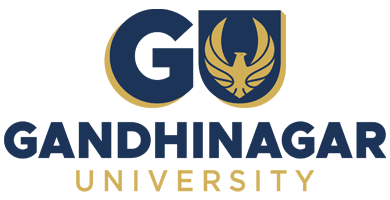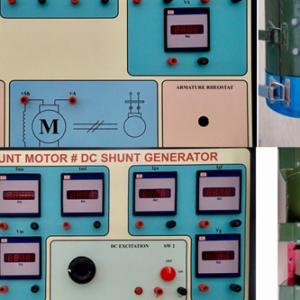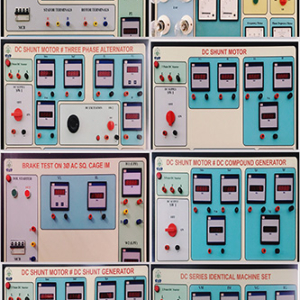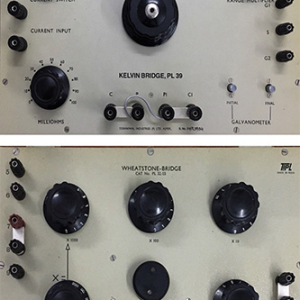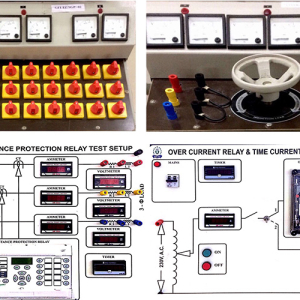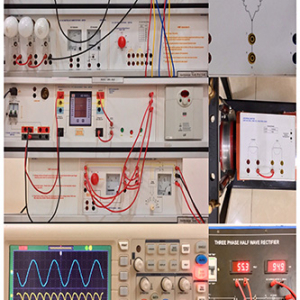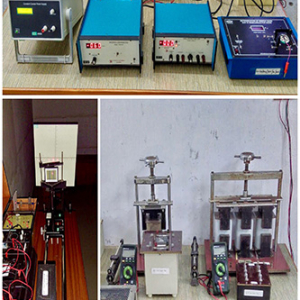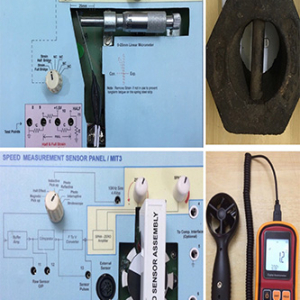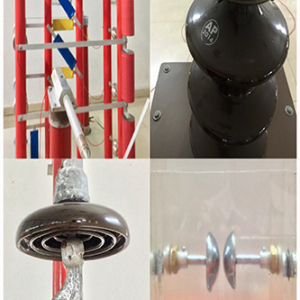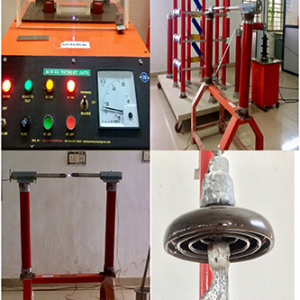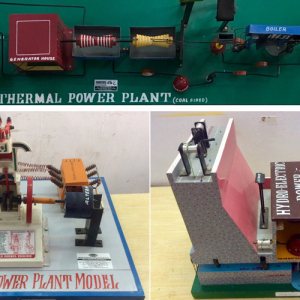Electrical Engineering
Home / GIT / Program / Electrical Engineering
About Department
The Department of Electrical Engineering strives to be a Centre of Excellence in education, training, and research, producing high-quality Engineers. A rigid curriculum is therefore designed keeping in mind the learning capacity of every student to help them approach towards their career in an innovative and disciplined manner. In this endeavor, the department persistently enhances knowledge and quality of faculty and staff members.
Laboratory facilities have been upgraded and new equipment are acquired to keep abreast with emerging technologies. As prerequisites to Electrical Engineering program, we provide students with the latest lab facilities as well as highly qualified and experienced faculties to answer their curiosities. To enhance the practical knowledge of students and to bridge the gap between current work practice and theoretical knowledge being taught, the institute frequently organizes industrial visits, expert lectures, and workshops.
The department has always exerted the best of its effort to meet the objectives of achieving technical excellence in the areas of Electrical Engineering such as Power Systems, Electrical Machines, Power Electronics, Energy Systems, Control system, Industrial instrumentation, Analog and Digital Electronics, Signal Processing, Microprocessor, and Micro-controllers.
Laboratory facilities have been upgraded and new equipment are acquired to keep abreast with emerging technologies. As prerequisites to Electrical Engineering program, we provide students with the latest lab facilities as well as highly qualified and experienced faculties to answer their curiosities. To enhance the practical knowledge of students and to bridge the gap between current work practice and theoretical knowledge being taught, the institute frequently organizes industrial visits, expert lectures, and workshops.
The department has always exerted the best of its effort to meet the objectives of achieving technical excellence in the areas of Electrical Engineering such as Power Systems, Electrical Machines, Power Electronics, Energy Systems, Control system, Industrial instrumentation, Analog and Digital Electronics, Signal Processing, Microprocessor, and Micro-controllers.
Courses Offered:
- B. Tech. Electrical (60)
Vision
To promote specialized knowledge in the field of Electrical Engineering along with interdisciplinary awareness and to develop a framework to support the communicative and ethical needs of industry and society at global level.


Mission
To impart quality education in the field of Electrical Engineering and to pursue research and higher studies by providing latest development through expert lectures, conferences and workshops.
- To facilitate and develop students for their better employability to adapt the changing needs.
- To encourage students and faculty members to undertake industry sponsored projects.
PEOs
- PEO1. Utilize sound principles of Electrical Engineering in various fields like electrical machines, Renewable energy, power system, power electronics, control system, etc.
- PEO2. Demonstrate professionalism including continued learning and professional activities.
- PEO3. Work successfully in their chosen career individually and within a professional team environment.
- PEO4. To achieve technical and managerial skills at individual capabilities and / or team within economic, environmental and social constraints.


PSOs
- PSO1. Graduates will demonstrate their knowledge in effective implementation during their practice of profession of Electrical Engineering with due regard to environment and social concerns.
- PSO2. Graduates will demonstrate their knowledge in analysis, design, erection and laboratory experimentation regarding Electrical Engineering.
- PSO3. Graduates will be motivated for continuous self-learning in engineering practice and pursue research in advanced areas of Electrical Engineering in order to offer engineering services to the society, ethically.
Program Outcomes (PO)
- PO1. Apply the knowledge of mathematics, science, engineering fundamentals, and an engineering specialization to the solution of complex engineering problems.
- PO2. Identify, formulate, review research literature, and analyze complex engineering problems reaching substantiated conclusions using first principles of mathematics, natural sciences, and engineering sciences.
- PO3. Ability to explore research methods and hardware as well as software tools to collect technical data, analyze and construe the data resulting in to meaningful conclusions.
- PO4. To work and excel in the core Electrical Engineering areas for analyzing and solving industrial problems.
- PO5. To initiate innovative ideas for bringing out engineering solution for complex problems.
- PO6. To develop team-spirit and work in united manner.
- PO7. To inculcate an ability to achieve an engineering solution with economical feasibilities.
- PO8. To work with professional and ethical responsibility.
- PO9. To communicate effectively with professionals in the field of engineering.
- PO10. To develop an attitude of life-long learning.
- PO11. To develop self-confidence for the utilization of engineering knowledge for sustainability.
- PO12. To analyze the impact of engineering solutions on society and environment. Program
What Students Learn in BE Electrical Engineering:
- Elements of Electrical Engineering
- Physics
- Electrical Measurement and Measuring Instruments
- Electrical Machines
- Elements of Electrical Design
- Design of AC & DC Machines
- Electrical Power Generation
- Field Theory
- Power Electronics
- Advance Power Electronics
- Microprocessor and Microcontroller
- Electrical Power System
- Interconnected Power System
- Power System Planning and Design
- Power System Operation and Control
- Control System Engineering
- High Voltage Engineering
- Utilization of Electrical Energy and Traction
- Controls of Electric Drives
- Switchgear and protection
- Industrial Instrumentation
- Testing and Commissioning of Electrical Equipments
- Energy Conservation and Audit
